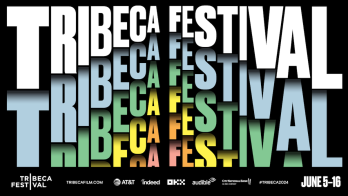Hip-Hop is going through a transitional stage right now. Style is seemingly outshining substance. This has a knock-on effect from the executives making morally difficult decisions on how to market an artist, to those hustling on the streets, angry that their culture and music is being gatecrashed by a host of Louis Vuitton wearing wannabes, with no real life experience. The art of hustling is up for debate.
Rick Ross’ music, persona and popularity symbolises the change that’s been slowly weaving its way through Hip-Hop over the last near-decade. We all know it’s been lurking, it’ just now we can’t escape it, even if we want to.
So how can press and media develop in order to offer some relevance to the way things have and are continuing to change?
A quick Google search on ‘Hip-Hop Reviews‘ will bring up hundreds of regurgitated second-hand views coupled with a few half-baked Wikipedia-sourced album reviews. But are reviews even relevant in today’s industry?
Reviews used to serve a purpose. Before you spent your hard earned cash, you’d want to be confident you’d be about to buy into a classic. Picking up the latest copy of XXL, Source or Vibe magazine could swing which direction your money travelled. You knew that the writers for those magazines had done their homework. They too had worked hard in their field and you’d put trust in their judgement and opinions. You needed to.
Then came downloading, soon followed by blogs and now streaming dominates.
Though the aforementioned magazines are still well respected heavyweights, the world of blogging means that fans have taken on the role of the Journalist. Editor’s pens have run dry. With so many people able to take to their blog and air out their criticism knowing their will be no repercussions, what makes one person’s views more newsworthy than the next?
With the use of streaming services such as Spotify and leaks of forthcoming music to the Internet, a fan only has to invest a short amount of time before being able to make up their own minds of whether they like something or not. No review necessary. No money lost.
An artist’s struggle used to be about getting their music to a larger audience through the medium of TV, radio or magazine. Now, with Twitter, an established artist can be their own Press Officer and give their latest news direct to the fans. At the time of writing this article, Nicki Minaj, who is yet to even release an album, has 1,431,113 followers on Twitter. Whatever her news, nobody can deliver it to that amount of people quicker than she can herself.
So the media side of the industry has some serious thinking to do if it wants to support Hip-Hop, stay relevant and avoid replicating the throwaway feel in some of the music that’s being created right now.
Maybe it’s the fans that need to take the time to take advantage of the shifts in roles within the industry? Maybe as fans-come-journalists we need to take some A&R responsibility and really push the artists who are less established.
<span styl
















